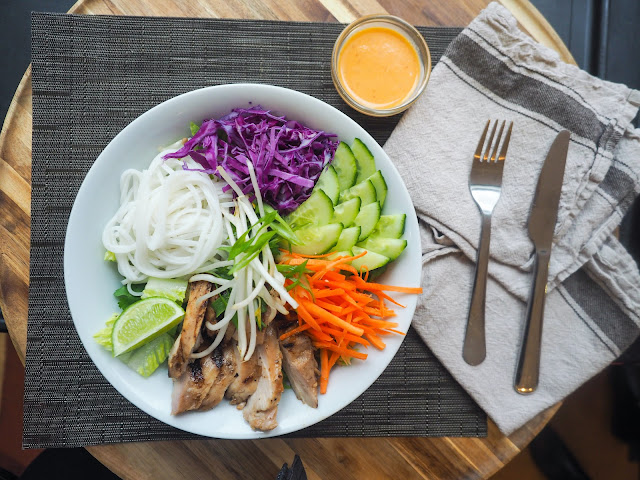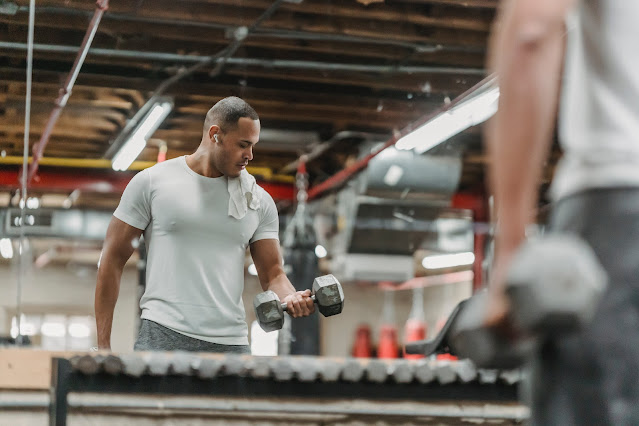Introduction
Understanding the Importance of Diet in Building an Athletic Body
When it comes to achieving an athletic body, it's no secret that diet plays a crucial role. Your diet directly impacts your energy levels, recovery, and overall performance. A well-planned diet can provide you with the nutrients needed to support muscle growth, fuel your workouts, and optimize your body composition. In this article, we will delve into the key elements of the ultimate diet plan for achieving an athletic body.
You can learn to grow healthy food yourself through (The Underground Farm): It is an e-book that shows you different methods that will help you grow healthy food in basically any environment
Debunking Common Myths About Diet and Fitness
Before we dive into the specifics of the diet plan, let's address some common myths about diet and fitness. It's essential to separate fact from fiction to avoid falling into ineffective or even harmful practices. We'll debunk these misconceptions and provide evidence-based explanations to guide you in making informed decisions about your nutrition.
Setting Realistic Goals for Your Body Transformation
Before embarking on any diet plan, it's crucial to set realistic goals for your body transformation. Building an athletic body is a journey that requires dedication, consistency, and patience. By setting realistic goals, you can create a sustainable and achievable plan that will keep you motivated throughout your transformation journey. Let's explore how to set goals that are specific, measurable, attainable, realistic, and time-bound (SMART).
Determining your Nutritional Needs
To create the ultimate diet plan for an athletic body, it's vital to determine your unique nutritional needs. This involves calculating your energy expenditure and understanding the role of macro and micro-nutrients in supporting athletic performance.
The Lost SuperFoods: It contains only long-lasting foods that can be stored without refrigeration
Calculating Energy Expenditure for Optimal Performance
Understanding Basal Metabolic Rate (BMR)
Your Basal Metabolic Rate (BMR) is the number of calories your body needs to perform basic functions at rest. It's essential to determine your BMR as it forms the foundation for meeting your energy needs. Factors such as age, gender, weight, and height influence your BMR.
Factoring in Physical Activity Levels
In addition to your BMR, you need to factor in your physical activity level. This includes any exercise or physical activity outside of your sedentary lifestyle. By considering your activity level, you can appropriately adjust your daily calorie intake to meet the demands of your workouts and daily activities.
Accounting for Training Intensity and Frequency
Your training intensity and frequency further impact your nutritional needs. Intense workouts require more energy, and your diet plan should reflect this. Additionally, frequent training sessions necessitate proper fueling to support recovery and enhance performance.
Macro and Micro-Nutrients: Building Blocks for Athletic Performance
To optimize your athletic performance and aid in the development of an athletic body, it's essential to understand the role of macro and micro-nutrients.
Protein: The Essential Muscle Builder
Protein is the key nutrient for building and repairing muscles. It provides the necessary amino acids needed for muscle synthesis. As an athlete, determining the right protein intake is crucial for achieving your goals. The amount of protein you need depends on factors such as your weight, training intensity, and goals. Joint & Muscle Health Supplement
Determining the Right Protein Intake for Athletes
A general guideline is to consume around 1.2 to 2 grams of protein per kilogram of body weight per day. However, some athletes may benefit from slightly higher protein intake. It's important to consult with a nutritionist or healthcare professional to determine the optimal protein intake for your specific needs.
Identifying High-Quality Protein Sources
While meeting your protein needs is important, it's equally essential to choose high-quality protein sources. These include lean meats, poultry, fish, dairy products, eggs, legumes, and plant-based protein sources such as tofu, tempeh, and quinoa. Incorporating a variety of protein sources ensures you receive a wide range of essential amino acids for optimal muscle growth and repair.
Carbohydrates: Fueling Your Performance
Carbohydrates are the primary energy source for athletes, providing fuel for muscles during intense workouts. Understanding the difference between simple and complex carbohydrates can optimize your energy levels and performance.
Differentiating Between Simple and Complex Carbohydrates
Simple carbohydrates, such as fruits and sugars, are quickly digested and provide a rapid energy boost. On the other hand, complex carbohydrates, like whole grains and vegetables, release energy more gradually, sustaining your performance during longer workouts.
Timing Carbohydrate Consumption for Optimal Energy
Timing your carbohydrate consumption is crucial for maintaining optimal energy levels throughout your workouts. Consuming a balanced meal or snack containing both simple and complex carbohydrates a few hours before exercise can provide sustained energy. Additionally, incorporating carbohydrates into your post-workout meal helps replenish glycogen stores, supporting recovery.
Fats: The Misunderstood Nutrient
Fats often have a negative reputation, but they play several essential roles in the diet of an athlete. They provide energy, support hormone production, and aid in nutrient absorption. It's crucial to identify healthy fat sources and balance your intake for optimal body composition.
Identifying Healthy Fat Sources for Enhanced Performance
Healthy fat sources include avocados, nuts, seeds, olive oil, and fatty fish like salmon. These fats are rich in omega-3 fatty acids, which have anti-inflammatory properties that can support athletic recovery.
Balancing Fat Intake for Optimal Body Composition
While fats are beneficial, it's important to monitor your fat intake to maintain a balance that supports your body composition goals. Consuming excessive amounts of unhealthy fats, such as saturated and trans fats found in fried foods and processed snacks, can lead to weight gain and negatively impact performance.
Micronutrients: Essential Vitamins and Minerals
In addition to macro-nutrients, athletes must ensure an adequate intake of micronutrients, including vitamins and minerals. These nutrients are essential for overall health, energy production, and immune function.
(Get Igenics New) Made with Natural, Vegan ingredients and ZERO fillers and Boosts Key Vitamins and Nutrients
Ensuring Sufficient Micronutrient Intake for Overall Health
A well-balanced diet that incorporates a variety of fruits, vegetables, whole grains, and lean proteins will typically provide sufficient micronutrients. However, some athletes may require additional supplementation, particularly if they have specific dietary restrictions or deficiencies.
Addressing Common Micronutrient Deficiencies in Athletes
Certain micronutrients are commonly deficient in athletes, such as iron and vitamin D. Iron is necessary for oxygen transport and energy production, while vitamin D plays a role in bone health and immune function. Regular blood tests and consultation with a healthcare professional can help identify and address any potential deficiencies.
Pre-Workout Nutrition Strategies
Optimizing your nutrition before workouts is essential for preparing your body for exercise. Proper hydration, pre-workout meals, and supplementation can significantly impact your performance and energy levels.
Preparing the Body for Exercise
Proper Hydration Techniques
Before diving into your workout, it's vital to focus on proper hydration. Hydration directly influences your performance, endurance, and body temperature regulation.
Understanding the Importance of Hydration for Optimal Performance
Proper hydration ensures adequate blood flow to your muscles, enhances nutrient delivery, and helps maintain electrolyte balance. Dehydration can impair your cognitive function, muscle strength, and overall performance. It's advisable to start your workout in a well-hydrated state.
Strategies for Proper Hydration Before Workouts
To optimize hydration before workouts, aim to consume at least 500 ml (approximately 17 ounces) of water two to three hours before exercise. Sip on additional water leading up to your workout to maintain hydration levels.
Fueling Up with Pre-Workout Meals
Consuming a balanced meal before your workout provides the necessary energy to fuel your performance. It's crucial to consider the ideal macronutrient ratios and choose easily digestible foods.
Ideal Macronutrient Ratios for Pre-Workout Meals
A pre-workout meal should be balanced, with a focus on carbohydrates and a moderate amount of protein. Aim for a ratio of approximately 60% carbohydrates, 20-30% protein, and 10-20% fat. These ratios provide the necessary energy and help maintain muscle integrity during exercise.
Choosing Balanced and Digestion-Friendly Pre-Workout Foods
Opt for easily digestible foods that provide sustained energy without causing discomfort during exercise. Examples include a bowl of oatmeal with added fruits and nuts, a turkey sandwich on whole grain bread, or a smoothie with a combination of fruits, yogurt, and protein powder.
The Role of Supplements in Pre-Workout Nutrition
Supplements can play a part in pre-workout nutrition but should be used judiciously and based on individual needs and preferences.
Popular Pre-Workout Supplements and their Effects
Pre-workout supplements often contain ingredients like caffeine, creatine, and beta-alanine, which can enhance focus, energy levels, and muscular endurance. However, it's important to note that their effectiveness varies among individuals, and potential side effects should be considered.
Considerations and Potential Risks of Supplement Use
Before incorporating any supplements into your routine, it's advisable to consult with a healthcare professional or sports nutritionist. Proper guidance can help determine if supplements are necessary, tailored to your goals, and safe for consumption.
Post-Workout Nutrition Strategies
After an intense workout, your body requires proper nutrition to aid in recovery and promote muscle growth. Postout nutrition is crucial for replenishing glycogen stores, repairing muscles, and restoring electrolyte balance.
Recovery and Muscle Growth
The Importance of Glycogen Replenishment
Glycogen is the stored form of carbohydrates in your muscles and liver. During intense workouts, your glycogen stores become depleted, and replenishing them is essential for optimal recovery and subsequent performance.
This new product is a fat-burning supplement that crushes with males and females
Post-Workout Carbohydrate Intake and Timing
Consuming carbohydrates shortly after your workout is essential for replenishing glycogen stores. Aim for a carbohydrate-rich meal or snack within 30-60 minutes after exercise. This helps kickstart the recovery process and prepares your body for the next workout.
Combining Carbohydrates with Protein for Optimal Recovery
Combining carbohydrates with protein in your post-workout meal or snack enhances muscle recovery and growth. Protein provides the necessary amino acids for muscle repair and synthesis, while carbohydrates replenish glycogen stores.
Protein Synthesis: Repairing and Building Muscles
Protein synthesis is a crucial process for repairing and building muscles. Proper protein intake post-workout is vital for maximizing muscle growth and recovery.
Recommended Protein Intake for Post-Workout Recovery
To optimize protein synthesis and recovery, aim for a post-workout protein intake of 0.3 to 0.4 grams per kilogram of body weight. Including a high-quality protein source in your post-workout meal or snack is essential.
Incorporating High-Quality Protein Sources into Post-Workout Meals
Opt for lean protein sources such as chicken breast, fish, Greek yogurt, or protein shakes to meet your post-workout protein needs. These sources provide the necessary amino acids for muscle repair and growth.
Hydration and Electrolyte Balance
Proper hydration and electrolyte balance are critical for post-workout recovery. Water and electrolytes lost during exercise must be replenished to maintain optimal bodily functions.
Rehydrating and Restoring Electrolyte Levels
Rehydrate by drinking water or consuming beverages that contain electrolytes post-workout. Electrolytes such as sodium, potassium, and magnesium help maintain fluid balance and proper muscle function.
Understanding the Role of Water in Post-Workout Recovery
Water is essential for nearly all bodily processes, including recovery and growth. Adequate water intake post-workout ensures optimal hydration, nutrient transport, and overall recovery.
Building Sustainable Eating Habits
To achieve long-term success in your athletic body transformation, it's essential to build sustainable eating habits. Consistency, mindful eating, portion control, and incorporating rest and recovery into your diet plan are key factors to consider.
You can recharge your cells, rehydrate your body, and feel the flow of energy with this well-known product
Maintaining Consistency and Balance
Consistency is crucial when it comes to achieving and maintaining an athletic body. By consistently following your diet plan, you create a foundation for sustainable progress.
The Role of Meal Timing for Athletic Performance
Proper meal timing can significantly impact your energy levels and performance. Consuming regular, balanced meals throughout the day helps maintain stable blood sugar levels and sustains your energy levels.
Proper Timing of Meals to Maximize Energy Levels
Spacing out your meals evenly throughout the day helps prevent energy slumps and sustains your metabolism. Aim for three main meals and two to three nutrient-dense snacks.
Adjusting Meal Timing to Fit Different Training Schedules
Consider adjusting your meal timing to match your training schedule. For morning workouts, ensure you have a balanced breakfast containing carbohydrates, protein, and fats. If you work out in the evening, plan your meals accordingly to have enough energy for optimal performance.
Mindful Eating and Portion Control
Practicing mindful eating and portion control are essential habits to maintain a healthy body composition and fuel your athletic endeavors.
Strategies for Adopting Mindful Eating Habits
Slow down and pay attention to your food while eating. Eat without distractions and savor each bite. This practice helps you recognize hunger and fullness cues, preventing overeating.
Managing Portion Sizes for Sustained Weight Control
Practicing portion control ensures you're consuming an appropriate amount of calories for your goals. Use visual cues, such as hand portions, to estimate serving sizes. Aim for a balance of carbohydrates, proteins, and fats on your plate.
The Importance of Rest and Recovery
Rest and recovery play a fundamental role in attaining an athletic body. Recognizing the signs of overtraining and incorporating rest days into your diet plan are essential for long-term success.
Recognizing Overtraining Symptoms and Necessity for Rest
Listening to your body is crucial when it comes to training. Overtraining can lead to decreased performance, prolonged muscle soreness, and increased risk of injury. If you experience chronic fatigue, lack of motivation, or decreased performance, it may be a signal that you need to incorporate more rest into your routine.
Incorporating Rest Days into your Diet Plan
While dedication and consistency are vital to achieving an athletic body, rest days are equally crucial for recovery and avoiding burnout. Rest days allow your muscles to repair and rebuild, reducing the risk of injury and optimizing performance. When it comes to your diet plan, rest days should involve a slight adjustment in caloric intake. Reduce your overall caloric intake by approximately 10-15% on rest days to prevent unwanted weight gain. However, ensure you still meet your macronutrient requirements to support muscle recovery.
Summary and FAQs
A. Key Takeaways from the Ultimate Diet Plan for an Athletic Body
Proper macronutrient balance, including proteins, carbohydrates, and fats, is crucial for achieving an athletic body.
Meal timing should be optimized, with five to six small meals throughout the day to maintain energy levels.
Staying adequately hydrated enhances overall athletic performance and supports bodily functions.
Rest days are essential for muscle recovery and injury prevention, with a slight reduction in caloric intake to prevent weight gain.
B. Frequently Asked Questions about Achieving an Athletic Body through Diet
"Can I achieve an athletic body without a strict diet?"
While having a structured diet plan can significantly support your athletic goals, it is still possible to make progress without being overly strict. Focus on making healthy food choices, balancing macronutrients, and ensuring adequate hydration.
"Are cheat meals allowed in the ultimate diet plan?"
Cheat meals can be incorporated in moderation, as they can provide a psychological break and help satisfy cravings. However, it is important to maintain balance and not let cheat meals derail your overall progress.
"What should I eat before and after a workout?"
Before a workout, opt for a light meal or snack containing carbohydrates and proteins to provide sustained energy. Post-workout, consume a meal rich in protein and carbohydrates to aid in muscle recovery and growth.
"How can I ensure I am getting enough protein in my diet?"
To ensure sufficient protein intake, incorporate lean sources such as chicken, fish, tofu, and legumes into your meals. You can also supplement with protein powder if needed.
"How important is meal timing in the ultimate diet plan?"
Meal timing plays a crucial role in sustaining energy levels, optimizing athletic performance, and aiding in muscle recovery. Aim for five to six small meals throughout the day, ensuring that you fuel your body at the right times.
Conclusion
Achieving an athletic body goes beyond exercise alone; it requires a comprehensive approach that includes a well-balanced diet plan. By following the ultimate diet plan outlined in this article, focusing on macronutrient balance, meal timing, hydration, and rest days, you can enhance your athletic performance, support muscle growth and repair, and achieve your desired physique. Remember, consistency and dedication are key, so fuel your body right and watch yourself excel in both aesthetics and performance.







